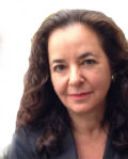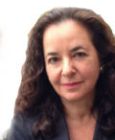Meditation
Can the Tools of Zen Meditation Help Us Heal?
Therapy: A two-person meditation.
Posted May 12, 2023 Reviewed by Tyler Woods
Key points
- The work of psychiatrist Mark Epstein offers insights on how meditation can support the process of therapy.
- Psychotherapist and Zen teacher John Tarrant explicates the healing powers of Zen koans.
- A koan is an ancient teaching tool and has been used to foster mental and emotional health.
“It feels like too much, it’s never-ending and it is all at once. You know the film that just won best picture? What is it called again?” Everything, Everywhere and All at Once? It wasn’t my favorite, but it describes my life,” Margaret, my elderly patient shook her head.
“My husband has been suffering with heart problems for years, and now he has cancer as well. I’ve had this knee surgery, my broken ankle isn’t healing, and now this horrible fall and concussion for months. My head is spinning and I’m constantly dizzy. I’m not allowed to read or use a screen. And no medical treatment seems to help.”
I listened quietly as Margaret continued.
“I feel like we are just getting over the impact of Covid. And these senseless shootings all over the country. It’s not just me, it feels like the whole world is sick,” she said as she began to cry.
I wondered how to respond. Two things came to mind. One was an essay in the New York Times on chronic pain in America by Nicholas Kristof. There is one line that keeps resonating in my mind, “Is this physical suffering a canary in the coal mine warning us of a larger dysfunction in our society?” The connection between personal well-being and the system is not new. In fact, it is ancient. The Indian sage Vimalakirti once said, “I’m sick and the whole world is sick.”
“So, what do I do now?” Margaret demanded, angry and agitated at her circumstances.
I’ve been a practicing clinical psychologist for over 35 years, but at this moment I didn’t know what I could say that would be helpful. Margaret, who had been a tough, take-no-prisoners litigator for decades would not have tolerated anything that was cliched. I didn’t want her to lash out.
I’d been reading psychiatrist Mark Epstein’s insightful book The Zen of Therapy. I was intrigued by his discussion of the work of psychotherapist and Zen teacher John Tarrant. In fact, I was so intrigued I started attending classes at the Pacific Zen Institute (PZI) and studying Zen Buddhism. There was one very inspiring class, taught by one of Tarrant’s colleagues, Jon Joseph Roshi, that helped me think outside of the usual psychotherapy box. The teachers at PZI use koans as a way of getting a fresh perspective on our problems. (A koan is a riddle for which there is no rational answer. They date from the origins of Zen Buddhism centuries ago). Epstein writes that “therapy itself is a koan. It changes minds by bringing forth unfamiliar qualities that are nevertheless intrinsic to our natures," (p. 213).
In this class, one of my classmates, who has been dealing with debilitating vertigo, described how a particular koan resonated with his condition. Margaret had been a meditator for decades and I wondered if she might be open to trying something different. We had been working together for years; it was a trusting and solid relationship. It seemed like a risk worth taking. I told Margaret about the class and my colleagues’s struggles (protecting confidentiality of course). Margaret is intellectually curious, a voracious reader, and was open to something new. I adapted this classic koan for her, which is attributed to Yinyuan Longqi.
“Don’t light a lamp—there’s no oil in the house…
Just feel your way along the wall.”
When Margaret is well, she attends two book groups and a movie club. She was a natural at koan interpretation.
“Yes, no point in lighting a lamp. It would be against doctor’s orders,” she quipped. “It would just give me a migraine headache. And we are certainly out of oil! That’s a good metaphor. We have no resources now, after all our assorted health problems. And, I have to stay in the darkness. No screens, no TV. I’ve been fighting relentlessly against this. It’s bringing up all this anger, and nightmares about my mother and siblings. Maybe I could stop fighting so hard,” she paused and smiled.
“I like the fact that there is someone else dealing with this. I feel less alone. I can try to go step by step, hand by hand, feeling my way. I feel like I’ve been working with a poem and it just offered me an insight."
The next morning, in my email box, there was a quote from writer Ursula LeGuin that appeared as a quote of the day: “We’re each of us alone. What can you do but hold out your hand in the dark?” I couldn’t help but smile.
Isn’t this the process of therapy? That we accompany each other through dark and difficult times?
In fact, it reminds me of one of my favorite insights from Mark Epstein, that therapy can be a “two-person meditation.”
References
Epstein, M. (2022) The Zen of Therapy. New York: Penguin Press.
Tarrant, J. (2008). Bring Me the Rhinoceros: And other Zen Koans that will save your Life. Boulder: Shambhala


